Sustainable Fuels 101: The Apex Interviews Guy Lachlan
The majority of enthusiasts get quite excited at the prospect of sustainable fuels, and for good reason. Their success could ensure the survival of the internal combustion engine. To find out more about the development of these fuels, and what is really going on behind the scenes, we spoke to Guy Lachlan. Guy is the Managing Director of Motor Spirit and the Executive Director of the Historic and Classic Vehicles Alliance (HCVA). He is an expert in the area of sustainable fuels, and it was a pleasure to welcome him to the Apex for a chat.
Archie Hill interviews Guy Lachlan for The Apex by Custodian. Recorded and produced by Archie Hill. Transcribed by David Marcus.
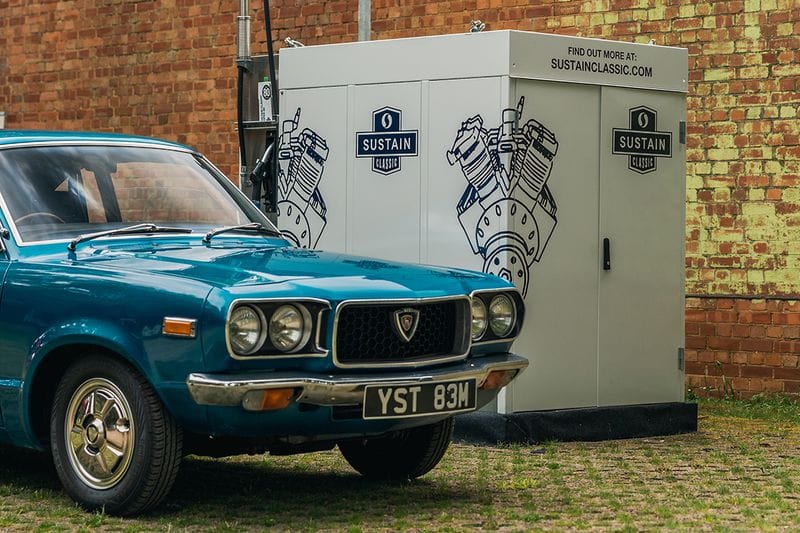
Guy, welcome to the show.
Thank you very much. Pleasure to be here.
Before I jump into my questions around sustainable fuels, I am curious to know what sparked your passion for cars?
Like all of us, it's a lifelong thing that I can blame my late dad for. I grew up surrounded by interesting cars in various stages of disassembly, mostly just sitting there for my entire childhood, but that was enough to get me interested in tinkering. I picked up a couple of cars from him when I was still a teenager. In fact my first car was a pre-war Ford 8 chassis, a 1950s Ford special that I had on the road in the 80s. It wasn't anything to be really proud of, but it was quite fun when you were 17.
I understand you are a bit of a pre war aficionado and you actually own a few pre-war cars, is that right?
Yes, I've been lucky enough to have a few. One of the cars that my dad had was a 1935 Derby Bentley that was a rolling chassis for my entire childhood. I bought that off him when I was in my 20s and put a body on that, and that was my first exposure to pre-war motoring, but since then I've been lucky enough to race. I had an Edwardian Aero-engine racing car which I had after that car, and I've got a couple of little Edwardian cycle car now and a vintage Sunbeam.

Is that the Le Zebre, the cycle car?
Yes, that was a little 850cc side valve, much too small for me. When I drive it my knees are around my ears.
I was going to say you are a tall guy, so that must be quite…
…I do look ridiculous in it.
Could you maybe explain a little bit about Motor Spirit and your role at the HCVA?
Motor Spirit was formerly known as Classic Oils, and as the name suggests, initially started with a speciality around lubricants for anything classic basically. So wherever you draw the line for what a classic vehicle is, Classic Oils did. But then we decided to branch more into fuels going back three years or so, and as we did that and our custom base therefore became less focused on classics and less focused on oils, we thought it was a bit silly to be still called Classic Oil, so we renamed the company Motor Spirit. Obviously that has resonances with petrol and the old name for petrol anyway, but also the spirit with which we try to approach everything. As far as the HCVA goes, I was one of the early guys involved with setting that up, because there wasn't really an organization representing the industry behind classic motoring, so a few of us got together and started it up in 2021. That has progressively absorbed more and more of my time now, so in fact what I've done recently is step back from my role at Motor Spirit and handed it on to my son, who now runs it every day at Bicester and the HCVA really takes up all of my time now.
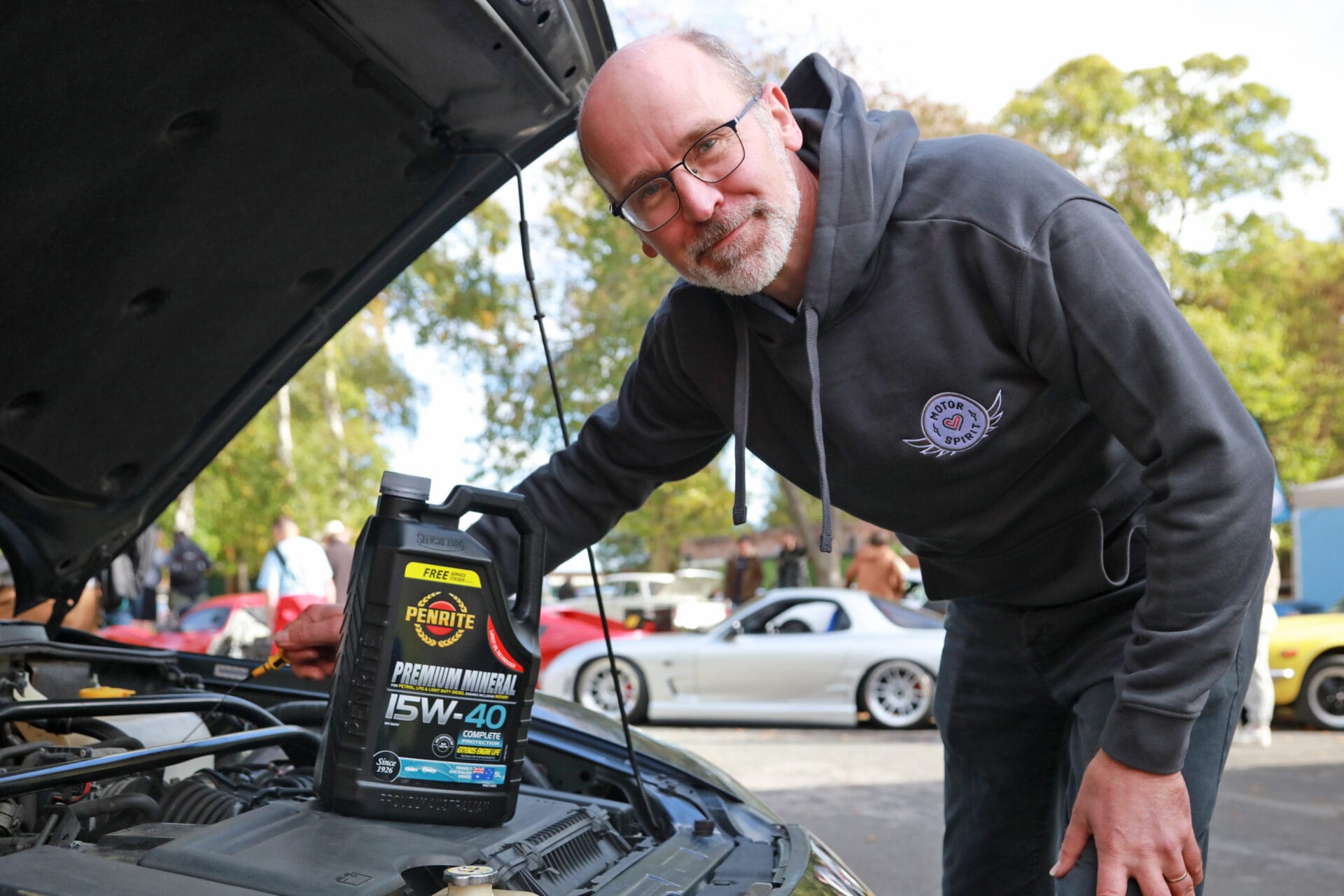
You mentioned Bicester there which is where you your operations are run out of, and that's also the only place in the UK that has a synthetic fuel pump installed, is that right?
I would say synthesized rather than synthetic. The word synthetic with oil is fraught with difficulty using it, but it is a synthesized fuel. It's technically called a bio-gasoline because it's made from waste bioproducts. It's the earliest stage of its ingredients chain if you like. So it's a bio-gasoline which in itself conjures up thoughts in people's heads about what it consists of, but it actually is a replica of petrol. The word bio just means that that's what you start with rather than anything to do with the end product.
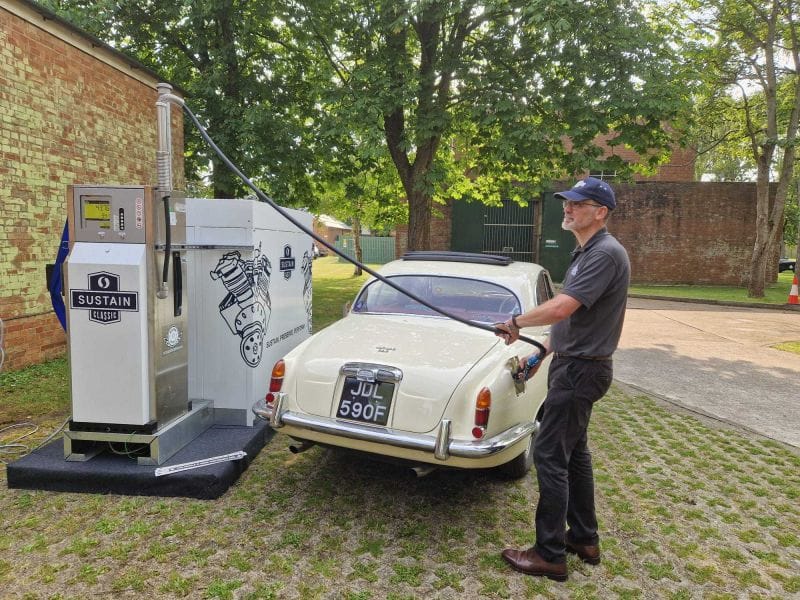
You gave a talk the other day at the Classic Motor Hub that I was keenly listening to, and from what I understand, getting into these sustainable synthetic fuels, there are currently two types, biofuels and e-fuels.
Correct.
Could you explain the difference?
It's all to do with where you are getting your carbon from, that's the idea. So biofuels and bio-gasolines, but biofuels in general, are using plants or plant matter to do their carbon capture, because the plant grows, it absorbs CO₂, it makes it into plant matter. Ideally you would want to use that plant matter for food first, and then you take your waste products, whether that's straw or whatever you want, that you can make into alcohol is the first step, then you make the alcohol through various processes into a replica of petrol. E-fuels is the pure way of doing it, which is where you take CO₂ from the air and your hydrogen from typically splitting water or another liquid, and combine them again through very clever chemical processes, and also end up with a replica of petrol. So technically e-fuels, which is the way that Porsche are doing and Zero Petroleum are doing, is the purer way of doing it, as long as the chemistry can be worked out in a way that they are producing enough so that fuels can be produced on a commercially viable scale. That's where the e-fuel people are at the moment. So at the moment all of the products that I am aware of that are available on any scale are all bio-gasolines, of one sort or another.
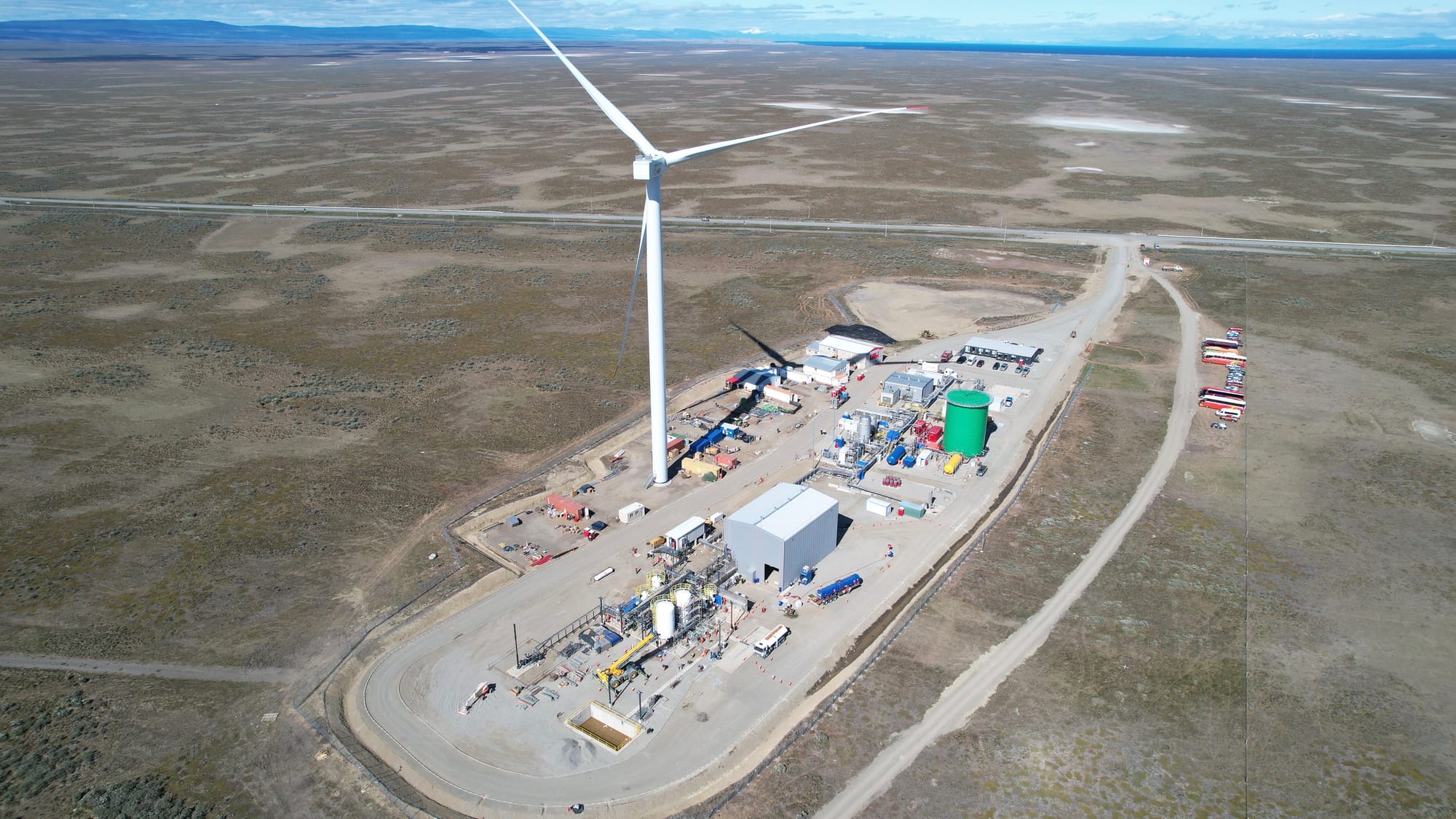
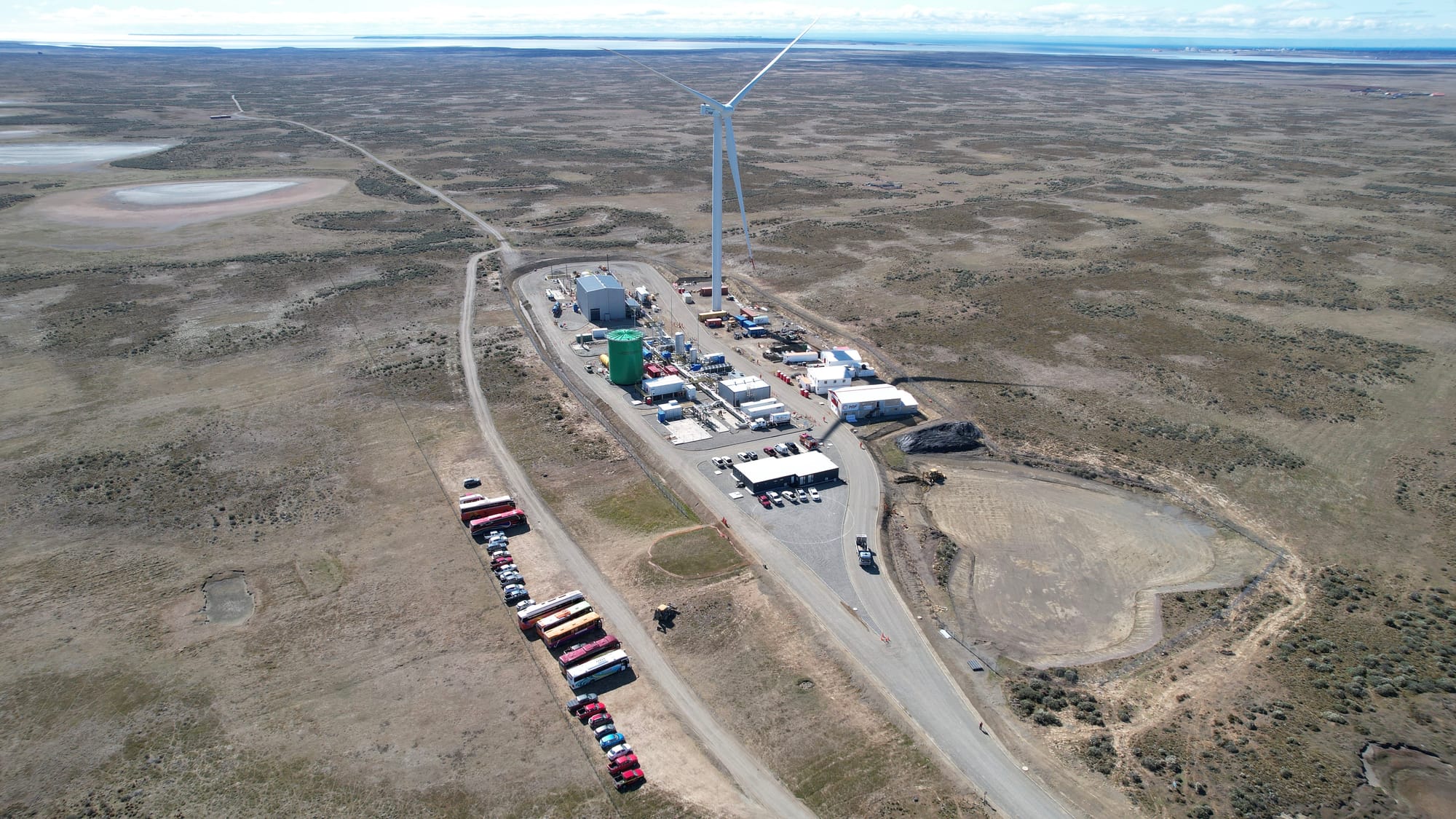
It sounds like e-fuels might be the better solution for the environment, but it's just harder to make?
Technically you could get to the stage where e-fuels are more than 100% carbon efficient, they would be capturing more than 100% of the carbon that ends up in the fuel, it is possible. So yes, the possibilities are there for them to take the lead. I think what's definite is that the chemistry of all of these processes is evolving very quickly, and nobody yet has the final step, the final answer to producing sustainable liquid fuels, but it's great that so many companies are engaged in the hunt for it, and they are all pursuing slightly different methodologies. Of course the reason they're doing that is because it's so important, and it's especially important to users of classic vehicles because we don't really have an option. If we don't have sustainable liquid fuels going forward, we are leaving ourselves open to being challenged as to why we don't have any God given right to carry on doing what we enjoy doing, so we need there to be sustainable liquid fuels, and it's great that so many companies are engaged in that research.
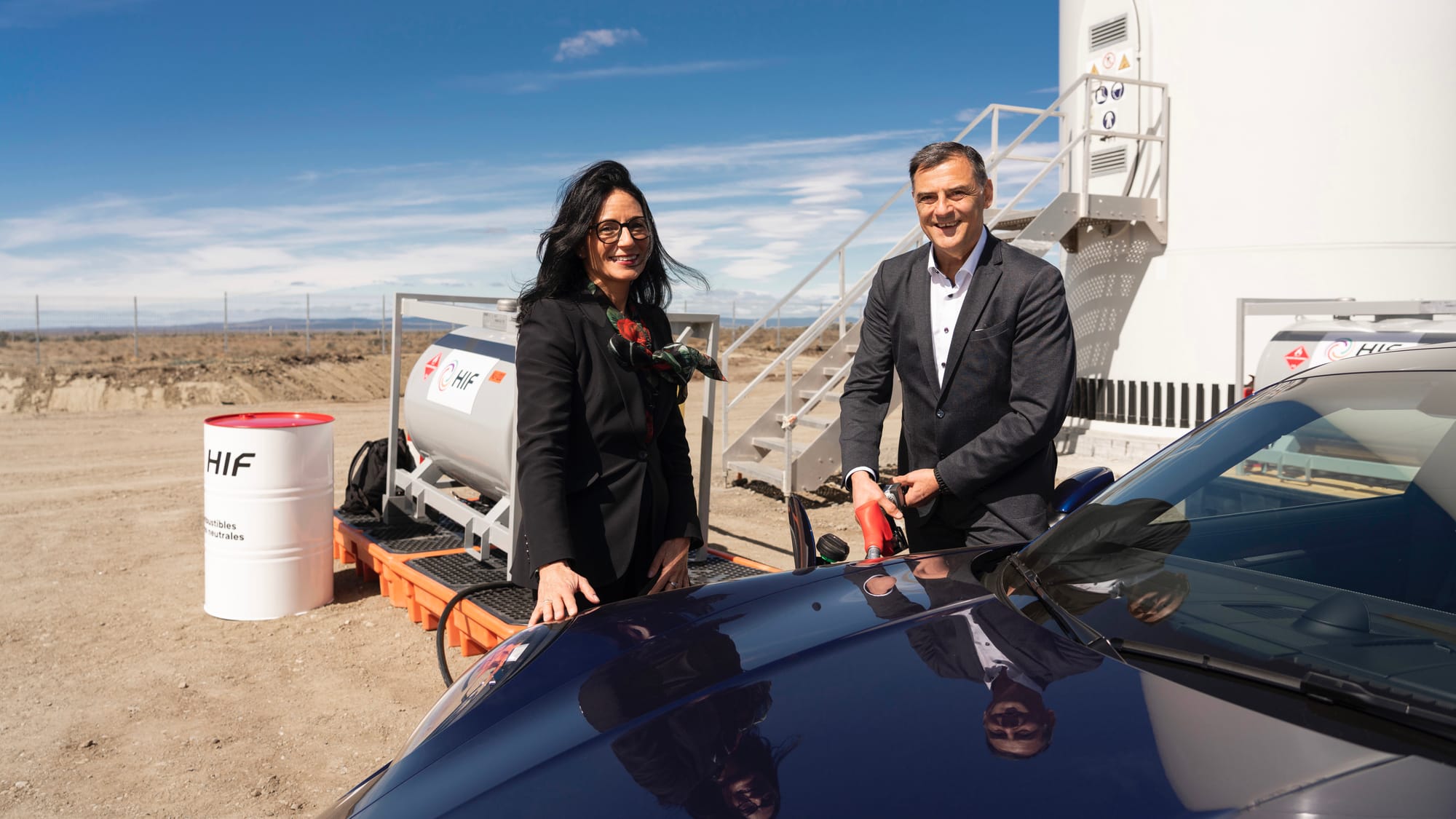
If someone is able to crack the last 20% of that equation, will one become the dominant player in that space or will they both evolve?
I expect so, but it's possible there might be something else new that nobody has thought about yet, but it's very difficult to pick winners and guess what is going to be the dominant VHS versus Betamax, which one is it? I am relaxed and happy that there are so many different competing chemistries and different competing companies and different ideas being exercised among the world's cleverest chemists to get us a solution, because like I say, it is desperately important for classic vehicles.
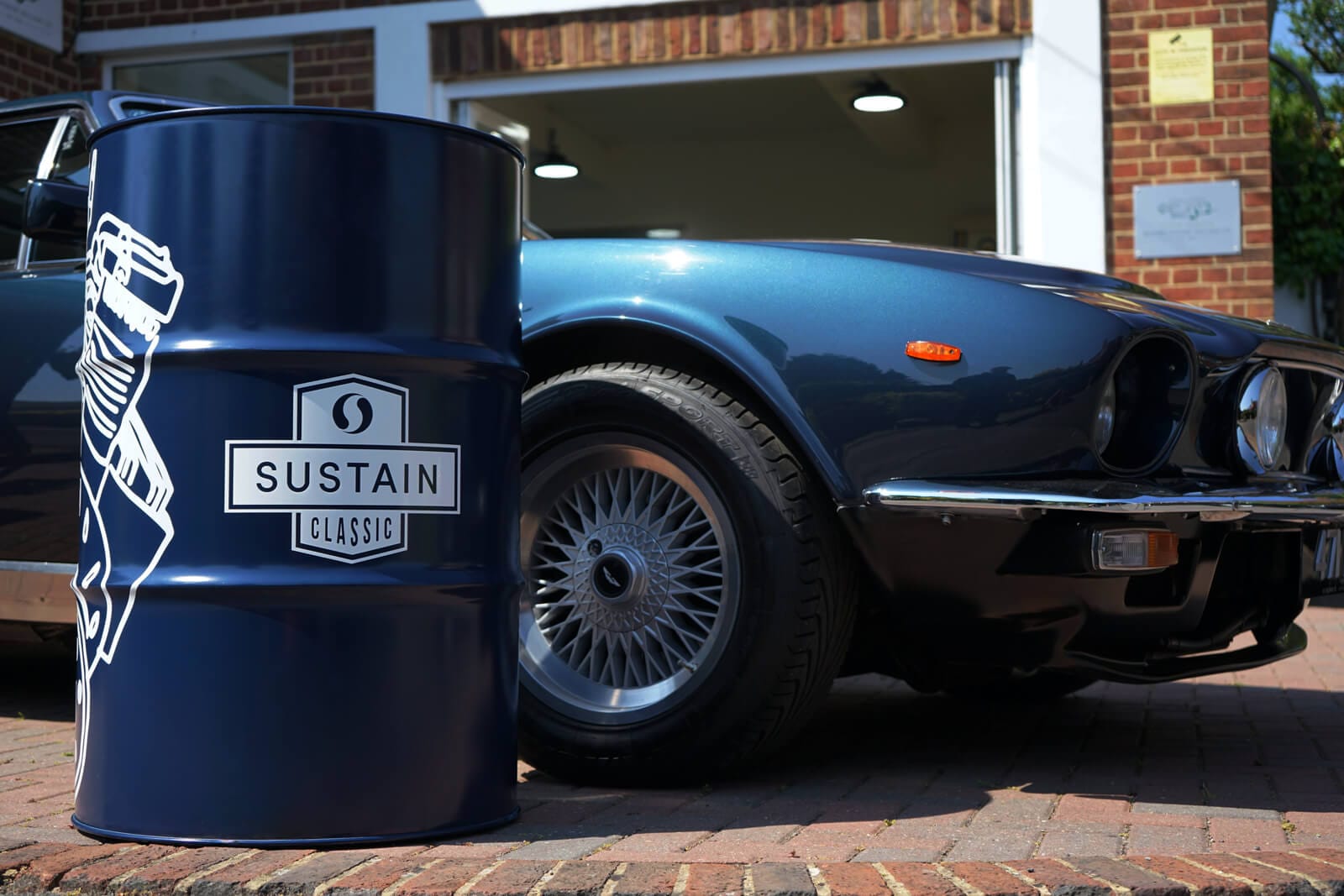
Could you maybe outline the process of the biofuels route and the one that you have set up at Bicester, what does the supply chain look like?
The one at Bicester is called Sustain, it's owned by Coryton, which itself is a subsidiary of a Swedish farming cooperative. So they have a very interesting closed loop approach to the whole thing, where they already produce plants to be made into food. They use those plants in their own food processing plants to make food. That obviously produces quite a lot of waste products from those processes, which would normally be just treated as waste, but because they have this holistic idea about the environment, they tried to make it all as closed loop as possible, so a lot of that waste is then taken to be made into ethanol in their own ethanol plant. Obviously ethanol is carbon, hydrogen and oxygen atoms, and from there through a couple of very clever chemical processes, which I won't bore you with, but basically the oxygen is stripped off and the carbon and the hydrogen are recombined in different length chain molecules that mimic what petrol is. So petrol is a mixture of long chain CH molecules of different lengths, and the mixture of those different lengths impacts the performance and characteristics of the fuel when you burn it and use it. So getting that mixture correct of the different chain lengths is important and that's what this fuel aims to achieve. The way that Coryton are approaching it is by focusing on the classic market, unlike some of the other manufacturers, which are going for racing or aviation or whatever else, has a need, because there are various needs for these sustainable liquid fuels and it's very important that everybody has a fair crack of the whip, as it were.
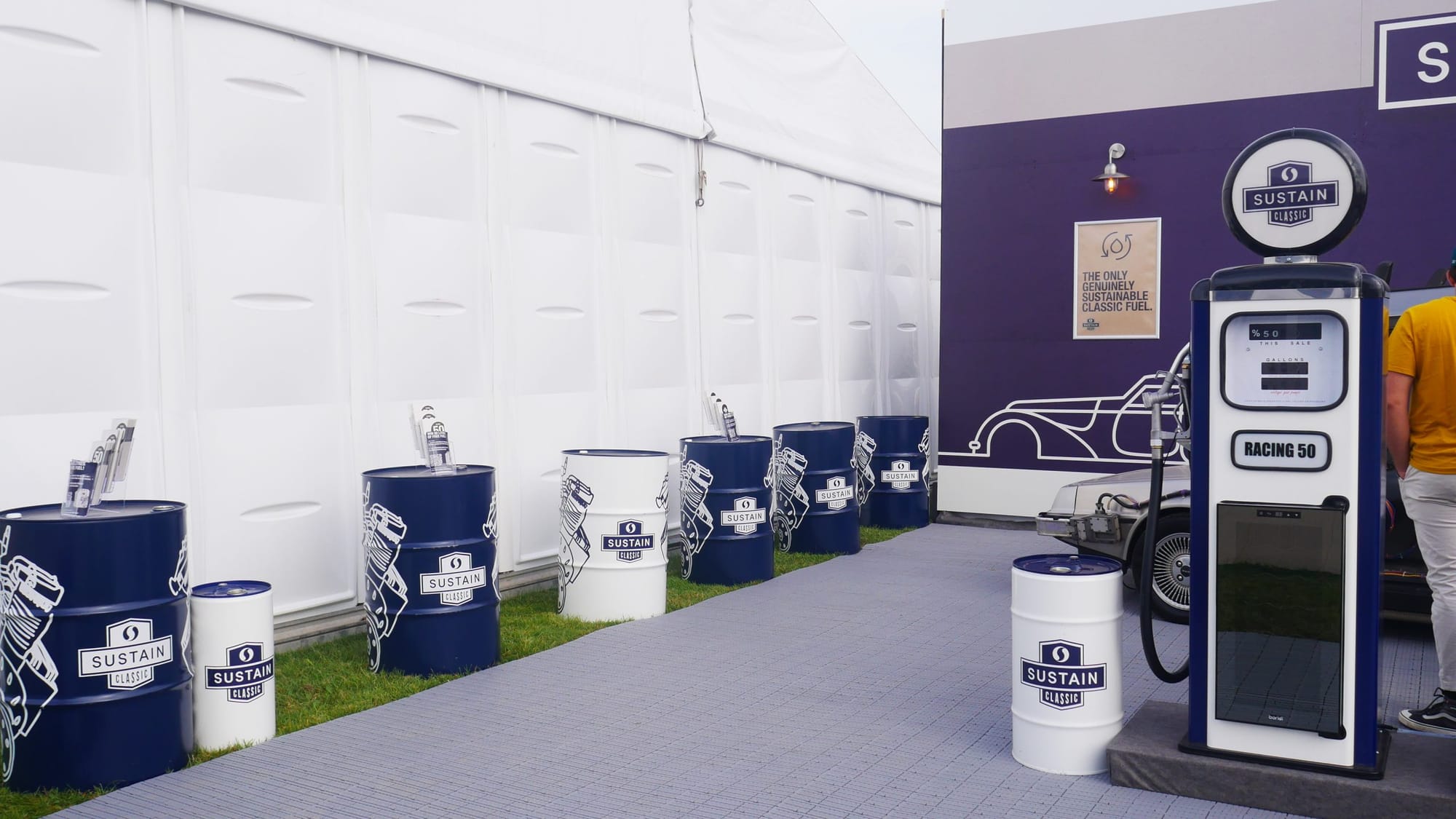
You said there are quite a few people operating in this space now, which is great, but what are some of the major challenges that are still to be overcome?
The main one of course is price. All of these fuels, as they stand at the moment, are expensive, so therefore not for everybody, and I don't think anyone would deny that. I think the major challenge will be the balancing act between ramping up production volumes at the same time as bringing down cost to the consumer. I would say that's the main one. I think politically people are ready for it. I think it would be good to see some recognition from government that these fuels exist and maybe encourage their development via different taxation principles that apply to normal petrol or finance the development of some of these products to a greater extent than they already are. I think those are challenges. I think obviously there are challenges involved in the chemistry of making the fuels work in the environment that they are intended to work in. They seem to be largely resolved now. There were some stories and issues about compatibility with lubricants and so on with various types of synthesized fuels, but I think they have now all been addressed and people are getting relaxed to the extent where we can expect to see Formula One running on these fuels in the future. The World Rally Championship is already setting the way.

I think the more that people use them, test them, find out what works and what works better and improve the blends and so on and so forth, then as time goes on, it will become more of a known quantity, and people will become more relaxed about using them. Obviously there are lots of challenges on the chemistry side, but as far as our sector is concerned, the classic sector particularly, I think it's to do with price, volume and infrastructure, just getting it. It's okay if you live near Bicester, but it's not very good if you live somewhere else, so getting the fuel is going to be an issue. Then the further you look into the future, if we were to live in a world where liquid-fuelled cars are few and further between compared to their electric or hydrogen or whatever else they are using as an energy storage medium, but in a world where petrol stations let's say are fewer and further between, how is all that going to work? There are various unanswered questions that need to be thought about because none of us are allowed to store more than 20 litres of fuel in our garages. There are logistic issues as well that also need to be addressed.
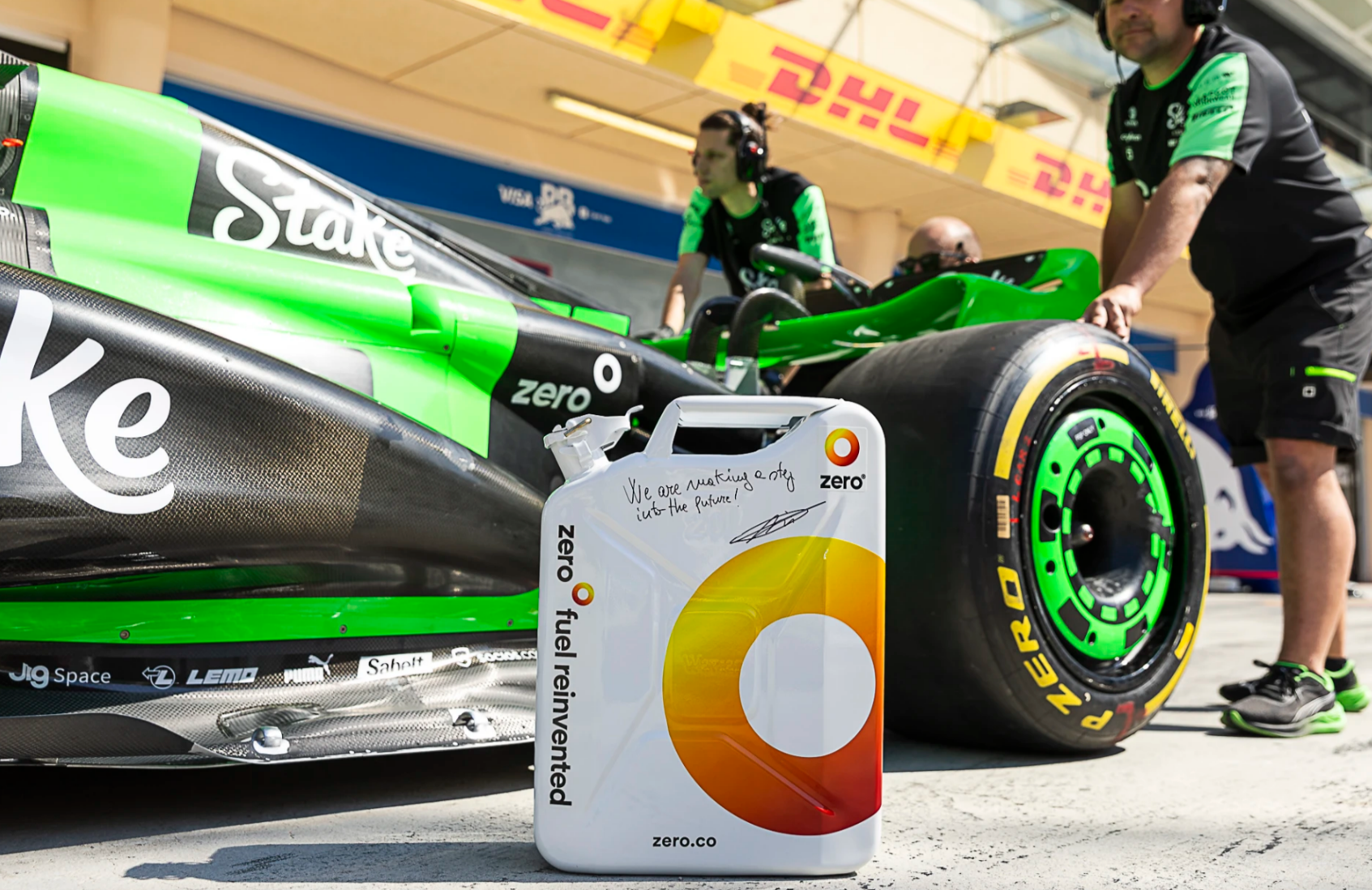
You kind of alluded to it a little bit there, I am curious about what's going on in the political arena, how aware are politicians of the development of these fuels? Because obviously you hear a lot of rhetoric in the news, certain regulations being imposed that you have to produce a certain amount of electric cars and zero emissions by 2035 or whatever it is now, are they up to speed on what's happening, that is probably a big part part of your work?
Yes it is, and to be fair to them, politicians have to know a little bit about a lot of things, and it is very hard for them to keep abreast. Nobody is as well up to speed as I would like them to be, but the ones who are involved in it, like on the Transport Select Committee, for example, are certainly aware and are becoming more pro sustainable liquid fuels as time goes on. We are seeing that not just domestically, but also you have seen in the EU recently, there is recognition there that even some new cars will be allowed to run on synthesized fuels, although at the moment, the condition on that is that they will have to only run on synthesized fuel. There will be some lockout system that will prevent them running on natural gasoline, which is the opposite to what we want in the classic car world, where we want to have a drop-in fuel that works seamlessly between natural and synthesized. So that's all to be resolved yet, but they are getting there. I think as far as classic cars are concerned, the major battle for us to overcome is that we are not trying to be or pretending to be the world's most efficient form of transport. We never will be and nobody says that we will be and we are not trying to be, but what we can be is responsible for the small amount of liquid fuels that we are burning. We can be responsible and for once we can actually lead the way with the development of these new technologies.
Aviation is another area that is big on these fuels because they don't really have another alternative, are we able in the car industry to ride on their coattails a little bit? I would imagine that the aviation industry is also pushing the development of these fuels, is that something that we are taking advantage of, or because we are having such an issue with supply, is there a risk that it is all going to go to the planes and not the cars?
It's not just aviation but it's also plastics, because it's all part of the same food chain if you like. So at the moment we live in this world where we have been spoiled by the fact that we dig these wonderful hydrocarbons out of the ground, do minimal processing to them, and we've got this incredible energy dense source of energy, basically for free, whereas now we have to make it. But once you have made it, you can make it into anything. You can make it into kerosene for aviation, you can make it into diesel for trucks, you can make it into petrol for cars, you can make it into plastics. Plastics are going to be, nobody really talks about that, but plastics are going to be the decider, I suspect. If we could end up with bio-plastics that you could use for whatever you are using the plastic for, then burn them and you are still carbon negative in the overall scheme of things, that would be obviously Nirvana. I think there are huge unknowns, there really are huge unknowns. The one thing that's for certain is that classic vehicles won't be driving anybody's behaviour from the manufacturing point of view because we are such a tiny market, so we have to ride on other people's coattails. It's really important that there are other users of these sustainable liquid fuels, because otherwise we won't have petrol stations just for classic cars, so it is important that other people use them.

In HCVA, we stay out of the new car conversation because that's not our bailiwick. We watch as interested observers but we don't stick our oar in and start saying what we think should happen to new cars because it's none of our business. We do have an interest for starters around the British minority interest production cars that still exist. It looks more and more likely we will stick to some degree with internal combustion engines, so you could say that they automatically become classics as soon as they are made, or in the future. Maybe every combustion engine car will be an instant classic, I don't know, but it is an interesting thing to think about. However much you think about it, you keep on coming back to the same situation, which is we don't know what the future holds, we don't even know what future political decisions are going to be around carbon neutrality, so it's very difficult to use too much of a crystal ball. I think all we can really do is show intent and show willing, and say that as a community, we are prepared to make these cars as environmentally friendly as they can possibly be. That doesn't just apply to CO₂ but that also applies to things like particulates, which are going to become an issue I am sure for us going forward. We have an opportunity to demonstrate to the movers and shakers in the world that we are actually responsible people that are seeking to do the right thing, whatever that right thing is now and will turn into in the future.
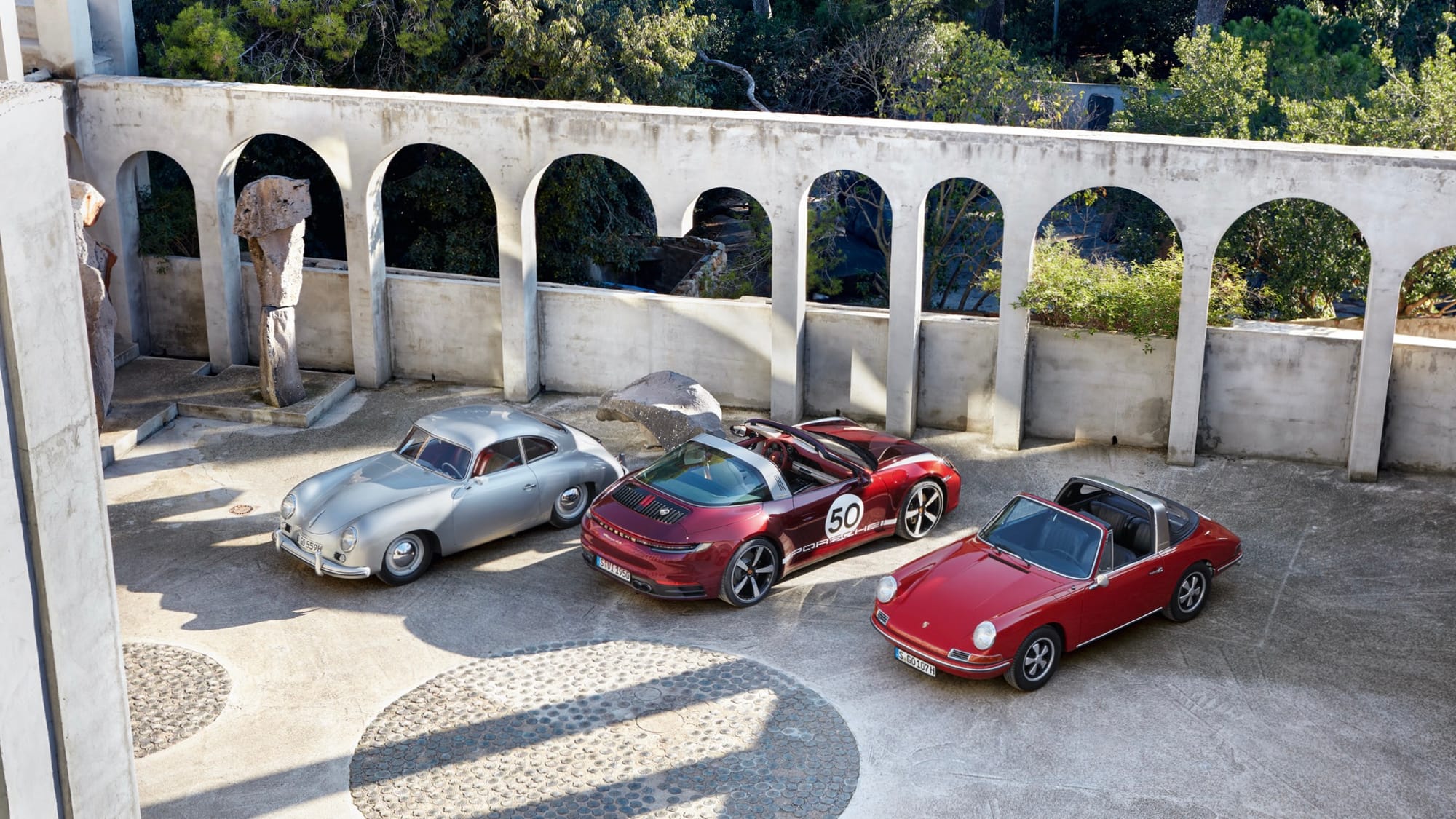
Very well put. Another question I had was, at the moment, what are the practical implications for people who actually own classic cars and want to start running, if they live near Bicester and they want to fill up their car on the fuel there?
There will be more of those around the country, hosted by other companies, so you can expect to see those being announced in due course. Beyond that, it becomes more like running a racing team where race teams are used to buying their fuel in drums, it's easier for them to cope with this. It is possible to apply for a gasoline storage permit for your house as long as you meet certain distance separation regulations and you get it approved by your local authority. It is a bit of a pain but it is possible to do, but you have to be fairly dedicated to go through all the hoops that you need to get go through to store more than 20 litres outside a car. That is the biggest logistic issue I think at the moment. There are some people who do that and who can legally store more than 20 litres of fuel at their house, but not many, but of course you could say that it doesn't really matter that there aren't very many people using this fuel at the moment, just that there are some, just so that we can show people that it's real and that all of these fuels actually exist, and they can be used for racing. Goodwood is leading the way this year with, first of all, I think two grids at the members meeting, but then every grid at the other two meetings this year, which is huge, that's absolutely enormous. That will get the headlines worldwide and start to put these technologies on the map, and start to also prove which are the Betamaxes and which are the VHSs.
In terms of the actual running of the fuel in a classic car, you don't need to modify the car in any way to run the fuel, how does that side of things work?
No, that's the aim. The second part of the chemistry after they have made the raw petrol, is to then blend it into a blend that suits the market you are after. So those manufacturers that want to supply fuel to the classic market, will obviously blend a fuel that is intended to be as drop-in-able as possible into that market. Now one of those things involves making sure there is no ethanol in the finished product, because ethanol is obviously not super kind to many aspects of older cars. But ironically, ethanol is a jump starter for making a sustainable fuel because ethanol is also sustainable by definition, and also helps to increase the octane rating of the fuel. It is very tempting to put ethanol into the fuel, but if you are blending it for old cars, obviously you want to keep the ethanol content down to as close to zero as you possibly can. So if you are making a fuel for old cars, you would have to minimize the ethanol content down to as close to zero as you can. Also other things like making sure that you are adding the appropriate components to your blend to reduce, petrol hates yellow metals, copper and brass in the fuel lines that many vintage cars have, so minimizing the finished blends effects on those yellow metals is also important if you are heading for the classic car market. Of course modern cars don't have any yellow metals in their fuel system, so if you are making it for modern cars, you don't have to worry about any of that. Ethanol of course wouldn't be a problem either. Racing is a whole other thing where you have racing cars that span everything from Edwardian cars up to historic Formula One. Those you can expect to see many different blends, which are really synthesised to suit their destination market.
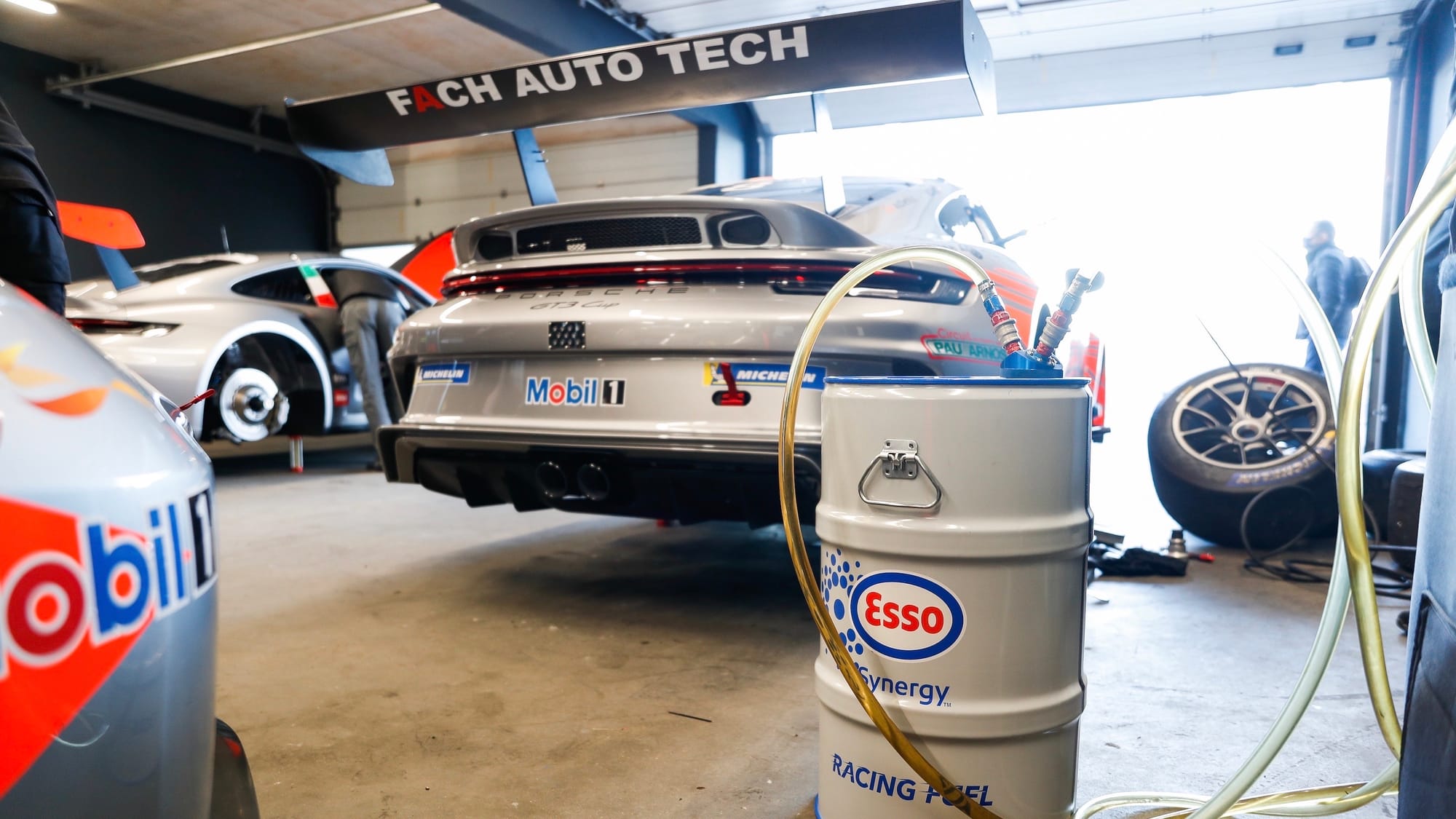
You gave a nice analogy in your talk at the Classic Motor Hub about, I think it was 1910 is the position that we are at the moment in terms of the development of these fuels, it almost seems like an impossible question now based on everything I have heard so far, but how long do you think until this is actually at the normal pump, what does the next decade or two look like? Are those just impossible questions?
I think it's impossible for me anyway. I am sure there are people in the industry who are actively working on this, and I am sure all of the oil majors are watching developments with great interest. I imagine that they are looking to see all of the companies that are working on viable solutions, and at some point they will acquire some of them and step in and put loads of money behind them and commercialize the whole thing to a much greater extent and improve the supply chains, and at that point it starts to become something that we would recognize as being a supply chain that works.
I think to end on I was going to ask you some quick fire questions that are a bit more light-hearted. I know you have raced at Goodwood and I was wondering if there are any other bucket list events that you would like to go to or compete in?
The trouble is I don't have a competition car any more. All of the continental, I have never ever done anything exciting on the continent at all, so Monaco would be fabulous, Spa Classic, Le Mans Classic, all of these events that we are so lucky to have, Angoulême, all of these amazing continental events. For me personally, I think the biggest revelation for me was to find that hill climbing is such an enjoyable sport, frustrating and enjoyable in equal measure, because you are competing largely against yourself and your every tiny error has a massive effect on your final time. I think it would be very nice to be able to be a better hill climber, which involves a lot of practice.

What is your favourite car that you have ever owned?
I think it has to be the Fafnir, which is that Edwardian aero-engined, 10 litre, four cylinder overhead cam, only 100 horsepower but really enough torque to pull tree stumps out of the ground. That was fun and that was the car I learned to hill climb in. I think there were a lot of people just waiting for me to wrap it around the nearest tree, but luckily the car looked after me well enough and I looked after the car well enough and it did me proud.

Final question, what's in your dream three car garage?
People ask me that all the time and I don't have a good answer. I think it's impossible because everywhere you look there are different cars that you just want to own one day. It would be nice to have an aero-engine Edwardian car at one end of the spectrum. It would be nice to have a Gordon Murray supercar at the other end of the spectrum, and in the middle, maybe a nice E-type, something that you could use, like a fixed head six cylinder series two or something like that, E-type maybe, but then again I am already thinking that that is wrong and I can think of another three. I think like most petrol heads it's impossible to narrow it down to three.

I won't push you on that one. Guy I know you are very busy so I will let you go but thank you so much for your time, really insightful to hear from you so thank you.
Thank you very much, thanks for having me.
Thanks for listening to this episode of the Apex with Guy, I hope you enjoyed it. A quick reminder, Custodian has launched car insurance designed for enthusiasts, so if you are an existing Custodian user, you can apply directly through the platform 24/7, and if you are not yet a Custodian user, sign up for free and check it out.

